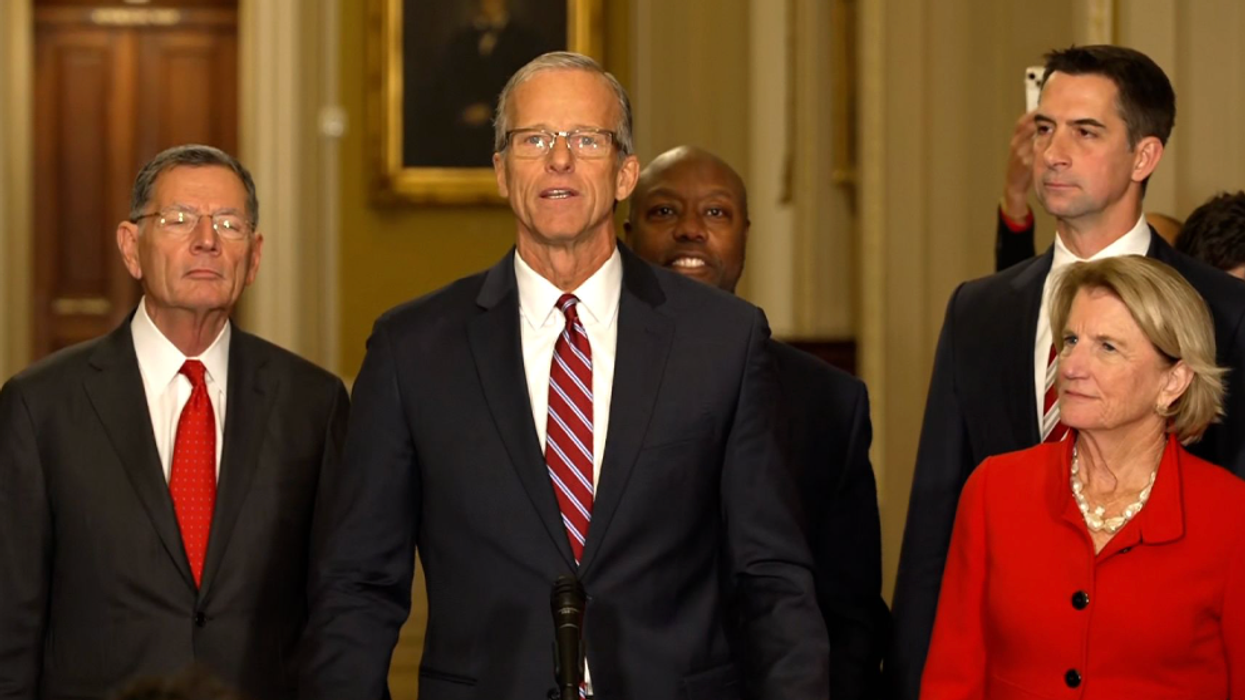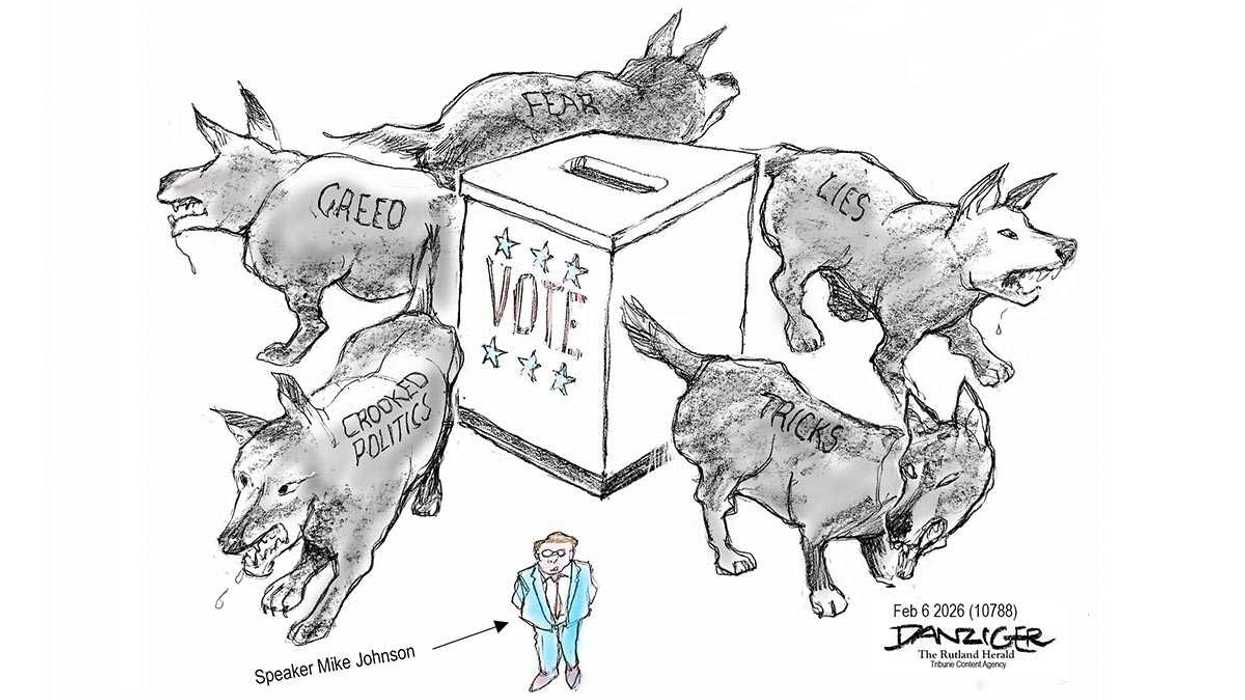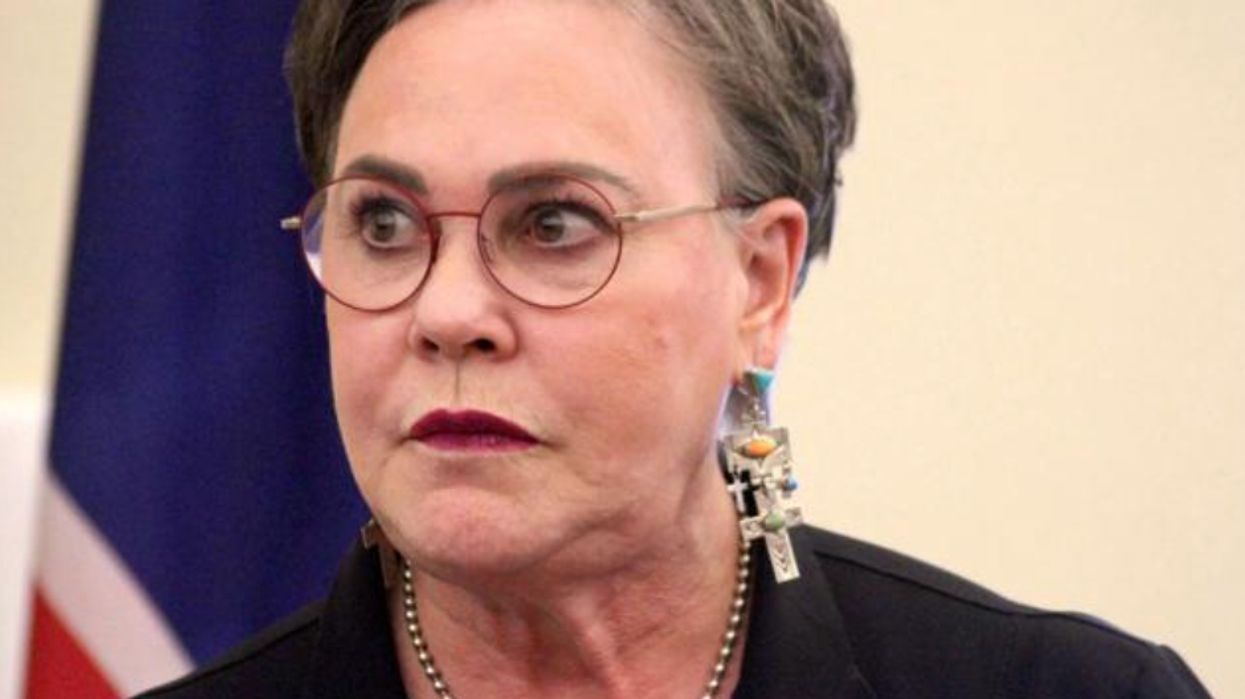Congressional Republicans Drop 'States Rights' To Help Trump Steal 2026 Midterm
President Donald Trump announced last week that he thinks that the federal government should take over the 2026 midterm elections—an obvious effort to rig the results in favor of Republicans to prevent Democrats from flipping control of Congress.
"These people were brought to our country to vote, and they vote illegally. The Republicans should say, we should take over the voting in at least 15 places. The Republicans ought to nationalize the voting," Trump told Dan Bongino, the loser podcaster who quit his top job at the FBI. "We have states that I won that show I didn't win. You're gonna see something in Georgia."
But rather than condemn the obviously illegal and dangerous threat, Republicans have been gaslighting Americans into thinking that Trump didn't mean what he said and is actually just talking about the need to pass their voter suppression SAVE Act, which would require proof of citizenship when registering to vote.
Take a look at what Senate Majority Leader John Thune (R-SD) said when asked whether he agreed with Trump's horrific demand to "nationalize" elections.
"I think the president has clarified what he meant by that, and that is that he supports the SAVE Act," Thune said Tuesday—an obviously false statement as Trump explicitly said that he wants the federal government to take over elections.
Q: Do you agree with Trump saying we should 'nationalize' elections?THUNE: I think the president has clarified what he meant by that, and that is that he supports the SAVE Act(That is not what he meant)
[image or embed]
— Aaron Rupar (@atrupar.com) February 3, 2026 at 2:52 PM
Similarly, Sen. Jon Husted of Ohio was also asked if he agrees that the federal government should take over elections, and gave a mealy-mouthed response that did not answer the question.
"I understand the president's frustration," Husted said on CNN. "We can instill confidence in both the president and American people that elections are run well through the SAVE Act."
And when host Dana Bash pushed further, Husted demurred.
"I don't know exactly what he means," Husted said.
Yeah, sure bud.
BASH: Do you agree the state is 'an agent for the federal govt' in elections?HUSTED: I understand the president's frustration. We can instill confidence that elections are run well through the SAVE ActB: He wasn't talking about the SAVE Act, thoughHUSTED: I don't know exactly what he means
[image or embed]
— Aaron Rupar (@atrupar.com) February 4, 2026 at 1:05 PM
Meanwhile, Coward of the Year House Speaker Mike Johnson (R-LA) spread voter fraud lies to defend Trump's call to take over elections—something the former constitutional lawyer should know is illegal.
Article I Section 4 of the Constitution explicitly states that, “The Times, Places and Manner of holding Elections for Senators and Representatives, shall be prescribed in each State by the Legislature thereof.”
So Congress can make laws regulating elections, but the federal government cannot run them—as Trump is demanding.
"We had three Republican candidates who were ahead on election day in the last cycle, and every time a new tranche of ballots came in they just magically whittled away until their leads were lost. It looks on its face to be fraudulent," Johnson told reporters on Tuesday. "Can I prove that? No."
Johnson: “We had three House Republican candidates who were ahead on Election Day…And every time a new tranche of ballots came in, they just magically whittled away until their leads were lost…It looks on its face to be fraudulent. Can I prove that? No.”
[image or embed]
— The Bulwark (@thebulwark.com) February 3, 2026 at 3:17 PM
Of course, the order in which ballots are counted means nothing.
Trump then made all of the GOP defenders look like idiots a day later, when he again said that, yes, he really did mean that the federal government should take over elections because of some nonexistent fraud he now has Director of National Intelligence Tulsia Gabbard probing.
"Take a look at Detroit … take a look at Philadelphia, take a look at Atlanta," Trump said Thursday. "The federal government should not allow that. The federal government should get involved. These are agents of the federal government to count the vote. If they can’t count the vote legally and honestly, then somebody else should take over."
Indeed, Trump has already tried to take over election administration with executive orders that sought to require people to show proof of citizenship when registering to vote, limiting the use of electronic ballot-counting machines, and blocking states from counting mail-in ballots that were postmarked on Election Day.
But federal judges have blocked the orders, saying that Trump cannot unilaterally change election law.
Republicans, who purport to be supporters of states’ rights, should be appalled at Trump's call to federalize elections.
But because they’re all sniveling cowards, they’ve instead found any way possible to defend Dear Leader.
Reprinted with permission from Daily Kos












